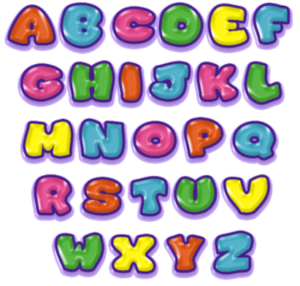09 March 2018
This week’s spellings are all words that sound like others but have different meanings – homophones. It’s important that your child recognises the different spellings and when to use them. Find out ways to know and learn the correct spellings of:
- they’re / there / their
- are / our
- too / two / to
- hear / here
- where / were / wear
- off / of
09 March 2018
This week’s spelling challenge is to write your spellings in big writing and teeny-tiny writing.
Year 1
- will
- still
- fill
- all
- fall
- ball
Year 2 have been learning about how the or phoneme (sound) is made using the ar grapheme (letters) when ar is preceded by a w.
Year 2
- war
- warm
- warmed
- warming
- warmth
- wardrobe
- award
- wart
- warp
- forward
02 March 2018
Learn the following words for a spelling test next Friday 09 March. Use the words in a sentence so that they are well-remembered.
The words all use a prefix – either im or in – to make the root word the opposite, from possible to impossible!
- impossible
- impolite
- impatient
- impure
- imperfect
- incorrect
- inactive
- invisible
- insecure
- inflexible
02 March 2018
Our spellings will be topically themed this week. Your task is to use each word in a paragraph explaining a ‘snow experience’. Choose a style of writing to use eg report, story, diary.
- sleigh
- sledging
- toboggan
- icicles
- slippery
- shovel
- blizzard
- hibernate
- blustery
- frozen
- freezing
- powdery
02 March 2018
This week’s spelling for Year 1 are words that we’ve noticed children often spell incorrectly – missing the i, using an o instead of a or using a single l.
Year 1
- will
- still
- fill
- all
- fall
- ball
Year 2 have been learning about how the or phoneme (sound) is made using the ar grapheme (letters) when ar is preceded by a w.
Year 2
- war
- warm
- warmed
- warming
- warmth
- wardrobe
- award
- wart
- warp
- forward
23 February 2018
This week’s spelling list is formed with words that have the prefixes im– and in–. If you don’t know what any of the words mean, find out!
- Think about the root word and how the prefix changes the meaning.
- Can you show your words in a creative way?
- Can you write them in your own sentences?
| impossible | impolite | impatient | impure | imperfect |
| incorrect | inactive | invisible | insecure | inflexible |
23 February 2018
The spelling pattern for this week is ‘tch’ ending in ed.
- clutched
- sketched
- snatched
- scratched
- stretched
- dispatched
- twitched
- wretched
Your task is to collect other words with the same ‘tch’ ending.
Can you add the ‘ed’ suffix to all of them? Which other suffixes can be used? Build word families (such as clutch, clutching, clutched, clutches).
23 February 2018
Use the lists from before the break to write your spellings in bubble writing.

Year 1
- our
- said
- they
- love
- are
Year 2
- write
- wrapper
- climb
- climbed
- climbing
- knock
- knocked
- knocking
- lamb
- knee
02 February 2018
Spelling Activity
The spelling task this week is linked to our Life Forces topic. We’ve come across many words ending in -ture e.g. vulture, creature, nature.
One of nature’s amazing creatures, the vulture, will travel on long adventures for its prey.
Find as many words as you can with the -ture ending and create some sentences using these words.
2 February 2018
Your child’s spellings all have the suffix ‘ious’
- ferocious
- anxious
- dubious
- envious
- curious
- spacious
- glorious
- bodacious
- fastidious
- furious
Your task is to create a word search including these words. The children will be tested on this spelling pattern on Friday 09 February.